11 Must Have Cloud Services to Turbo Charge your Business

Are you ready to embrace the cloud? It's what everyone else is talking about? The thing is does anyone actually know what it is apart from being nice and shiny? And are any cloud services actually any good? I discuss 11 fantastic cloud services, software as a service or apps that will help your business.
#1 Office Software in the Cloud
I'm going to be sitting on the fence on this one, or rather give you three options! The choice you make in the end depends on your business. Traditionally most businesses had standalone computers connected to the internet or their own office server. Each computer would have individual copies of Office software (usually Microsoft Office) or the Office software was deployed by the server. The problem with this approach was that it required maintenance of a server, software updates, licences and you'd quite often end up being in a mess. No doubt you'll have heard that "the cloud" is the best thing ever and you should be embracing it right now. I'm always quite sceptical about such statements, but I do think now is the time for businesses to look into it. Here are 3 advantages:
- No local server to run, manage, maintain or repair
- Less reliance (if any) on an IT department
- You always have the latest version of Office (with security updates)
There are different options depending on your set up and budget. Office 365 Most of the Office 365 plans give you full versions of Office which you can run on your local desktops or laptops. Calling this a "cloud" service is stretching the definition a bit, but you do get some cloud storage to store and share your documents as well as Microsoft Exchange for your email. It's more of a subscription based service for Office with Microsoft Exchange thrown in for good measure. If you opt for Office 365, you'll still need to manage your computers and software together with security updates. That probably means you'd still need to keep someone or a team to manage your computers or to offer you support if and when things go wrong. Citrix XenApp Instead of running Microsoft Office on your computer, why not actually run it in the Cloud? With the likes of XenApp from Citrix you can run the likes of Microsoft Word, Outlook and Excel from your computer as if it is running locally- but instead it is being powered by servers at a data centre. This is not like traditional screen sharing or remote desktop- this is what is called "App virtualisation". The advantage of this is that you don't have to run any software locally on your computer. That means no worrying about software updates, security or backup- all of that is taken care of by your XenApp provider. It even continues to work if your internet connection dies. The ability or inability of cloud services to work offline is one of my big concerns with using Cloud based services- so the fact that it works is a big advantage. In order to use XenApp you need to find a Cloud based provider who offers Citrix XenApp, for example The IT Farm based in Manchester. Amazon WorkSpaces Internet retail giant Amazon have always offered a wide range of web services such as simple storage (S3) and cloud computing (EC2). Recently Amazon announced Amazon WorkSpaces which is their first venture into what they refer to as "a fully managed desktop computing service in the cloud". It is very similar to the likes of Citrix's XenApp in that it offers Office Apps virtually on your computer. The cost is also very reasonable starting at $50 per user per month (including all the software licences). I'm very interested to know more about this technology. I do have my concerns though. What will the customer support be like? Where will our data be stored? If it's the US (which is likely) then I'd be concerned about data security, particularly in the post-Snowden/NSA world.
#2 Password Management in the Cloud: LastPass
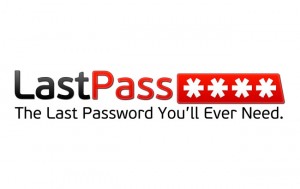
- It helps you and your team remember all your passwords
- You can share passwords for shared accounts with your team, and keep your personal ones to yourself
- Enables you to use super strong (uncrackable) passwords for all your accounts
- Saves time by filling in your login details across all your internet accounts
- With LastPass Enterprise you can use a Security Policy that your staff have to comply with- minimum length of passwords etc
- Words across all browsers and mobiles and offline
Everyone can use LastPass for free, but the paid versions aren't expensive. Premium is $12 per user per year and the Enterprise version is $24 per user per year/ That's just the start of it, but you get the idea. As you can tell I love LastPass- and no I'm not on commission- I am just a happy customer!
#3 Manage Customer Relationships in the Cloud: Nimble
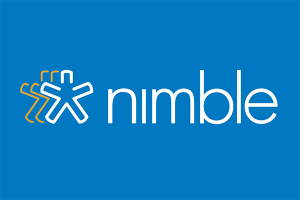
- Your local address book (from Outlook, Thunderbird etc)
- Your cloud based contacts list (GMail, Apple Mail etc)
- Your Social Network contacts (Twitter, LinkedIn, Facebook, Google+)
- Social groups and Twitter lists
- Your newsletter service (for example MailChimp)
With these contacts you can then merge any duplicates and start tagging them so that they are easy to find later. For example I have tagged all the CEOs I know, my clients, friends, people from University, school, potential clients and more. Tagging means I can segment my contacts into different categories- making it much easier to find a group of contacts or a specific one instantly. One of the great features about Nimble is that you can see easily if your contacts are on LinkedIn, Google+, Twitter and Facebook and directly connect with them all from the dashboard. You can also see any mentions of you on social networks directly from within Nimble. It is such a time saver and will help you and your business be much more productive!
#4 Backup and Sync in the Cloud: SpiderOak

Technically Google and Dropbox can decrypt any of these files if the likes of the FBI or NSA ask them to. If you have important data on your customers you can never be too careful with your data. That's why I recommend SpiderOak as a backup and sync tool. For $10/mth up to 100Gb of data is backed up to the cloud and you can synchronise this onto the folders of any other computer you own. I synchronise and back up my entire documents, videos, photos and desktop folders between my laptop and desktop. It means I can work between my laptop and desktop and have all the files I need, and be happy that all my data is backed up securely. I say securely because SpiderOak adopts a "zero knowledge" policy, meaning that they can't decrypt my files even when asked to do so. All passwords are fully encrypted.
#5 Email in the Cloud: Google Workspace
Google Workspace is an alternative to Microsoft's Microsoft Exchange platform. It uses a business class version of GMail together with Google Docs (or Google Drive as it is now called). Although I tend to recommend Office 365 or a cloud version, I personally prefer Google for email, contacts and calendar. With the paid version of Google Workspacve, you get up to 25Gb of space for email and documents but you can always pay for more.
#6 Security & Encryption in the Cloud: Private Internet Access VPN*
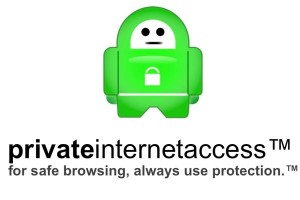
#7 Social Media Sharing in the Cloud: Buffer
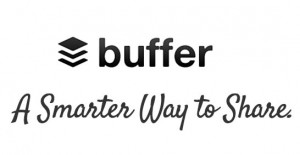
#8 Social Media Relationships in the Cloud: Commun.it
Unfortunately, Commun.it is no more.
#9 Document Sharing & Lead Generation in the Cloud: edocr
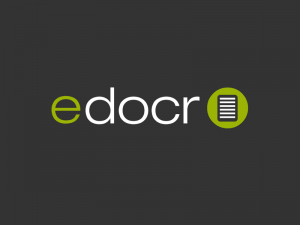
#10 Real People Web Analytics in the Cloud: CANNDi
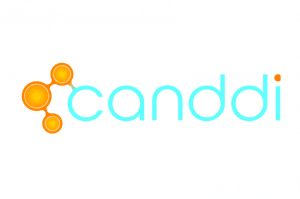
- Their name
- Phone number
- Their location
- Their company
- How engaged they are (how many visits, which pages they visit, where they come from)
It does this by cleverly syncing information from contact forms, comments, mailing lists and other methods. You can even use your favourite mailing list system (for example MailChimp) to track who is clicking through to your website. If CANDDi can't work out exactly who the person is, it can still tell you their rough location and perhaps the company they work for or own. CANDDi isn't just for your website either, it can integrate telephone tracking too. This is a fantastic high level lead generation tool. CANDDi isn't cheap (it starts from £99/mth) but it's not expensive when you compare it to far less effective forms of advertising and marketing platforms.
#11 Telecommunication & Phones in the Cloud: Soho66*

- Play welcome message
- Connect to Office VOIP phones for 10 seconds
- If no answer then phone office AND home VOIP phones for 10 seconds
- If still no answer then phone office and home VOIP phones and mobile/cell phones for 10 seconds
- If still no answer, redirect to voicemail
You can set up business hours for your calls so that calls outside of these times are directed to your voice mail straight away. You can record calls and store them securely. You can also set up an IVR (Interactive Voice Response) system that allows the caller to choose which extension or department to be directed to by pressing a key on their phone. You can receive faxes and send faxes by email (yes, some people still use faxes!). Unfortunately, Soho66 is only available in the United Kingdom, but there will be quality VOIP providers where you are located if you live outside the UK. If you live in the United States or Canada, you could check out Google Voice. Although not as flexible as a full VOIP provider it does provide some of these features.
Conclusion
So, are you ready to embrace The Cloud? Have you already done so? What services do you or your business use? As always let me know your thoughts, dear reader, in the comments below!



Comments